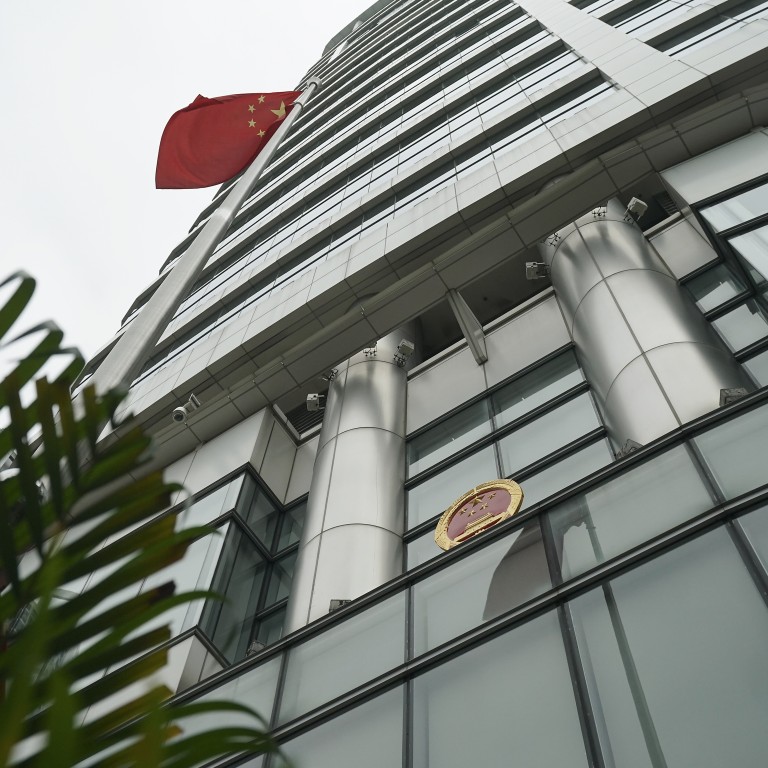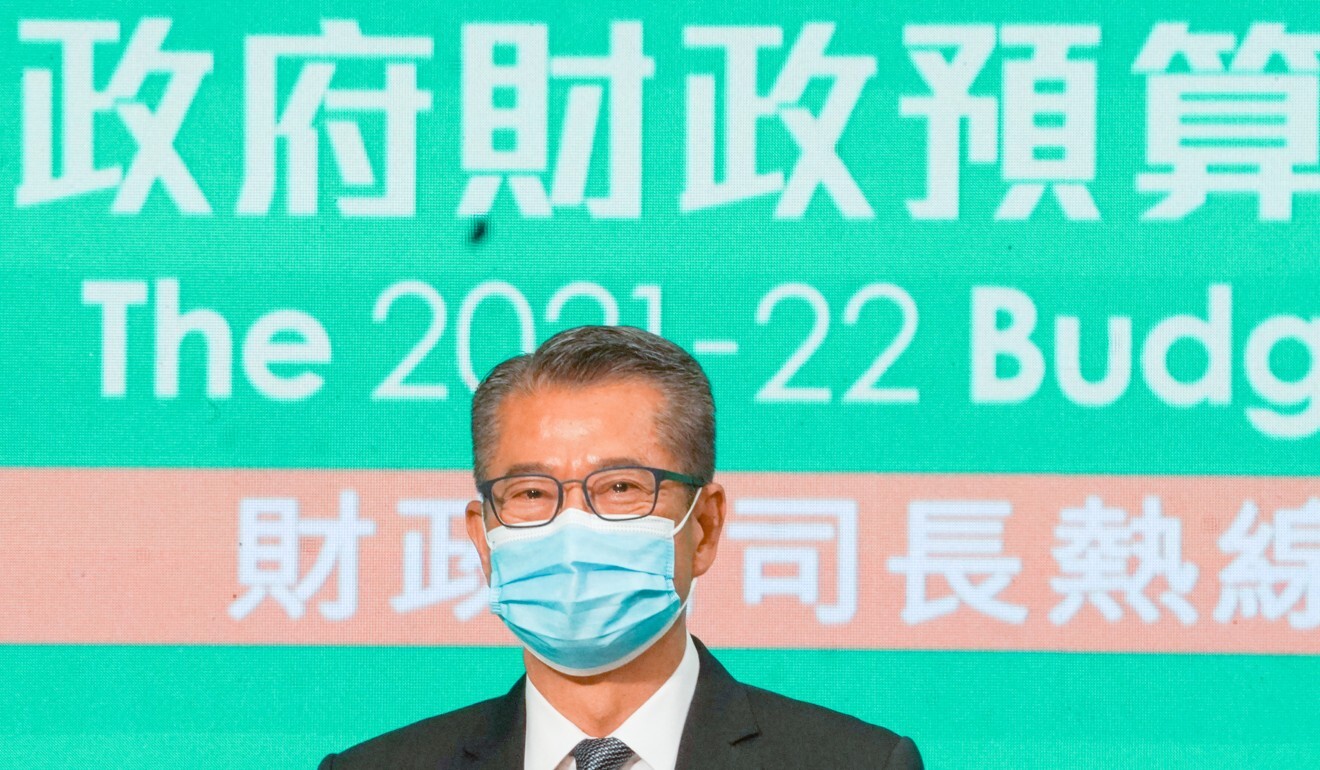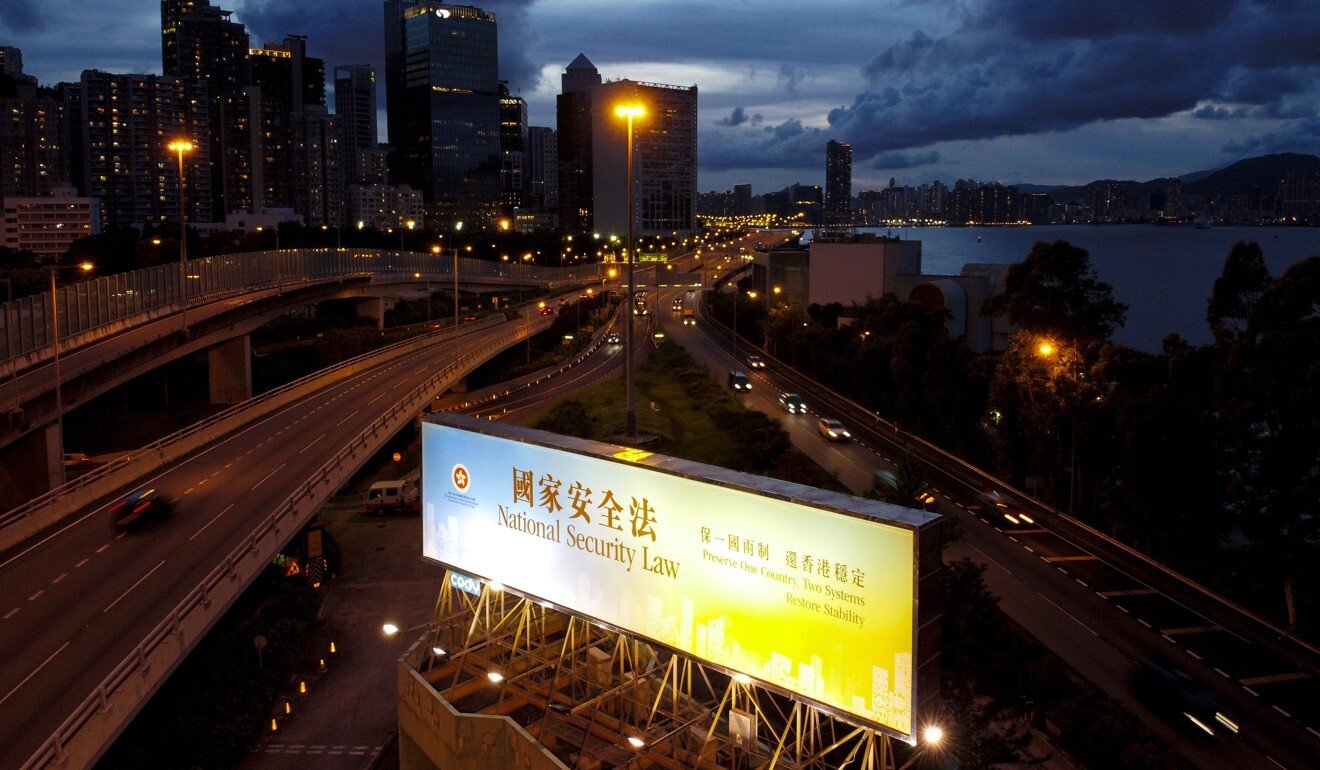
Hong Kong officials say HK$8 billion earmarked for national security has nothing to do with Beijing’s office in the city, but remain tight-lipped on details
- Financial Secretary Paul Chan has declined to elaborate on how the money will be spent, saying the expenditure ‘has a certain degree of confidentiality’
- Chan did not mention the money in his annual budget speech on Wednesday, and it was only stated in a separate 1,000-page budget document
Chan refused to disclose when appearing on a radio programme how the HK$8 billion would be spent, but dismissed the suggestion that the expenditure was equivalent to “military spending”, reiterating only that it was a necessary expense.

“[Some] may say that Hong Kong is very safe and we do not need to spend money on this area, [but] in 2019 we experienced half a year of social unrest. Such circumstances exposed the gaps in national security. This HK$8 billion will be used over a number of years … it is necessary,” he said.
Chan said relevant reports on national security expenditure would be submitted to the Legislative Council within the year.
“National security spending, with reference to other countries, has a certain degree of confidentiality,” he added.
Chan also insisted that the funds for national security spending had already been disclosed in government accounts last October, and therefore did not need to go through another round of allocation.
It was not immediately clear what government accounts Chan was referring to, but the money did appear in a document called the “Consolidated statement of assets and liabilities as at December 31, 2020” gazetted by the government on February 5.
Officials quiet on how HK$8 billion for national security will be spent
In contrast with other items included in the statement, the HK$8 billion was not listed under any specific department, and was described as “non-recurrent appropriation to a special fund to meet the expenditure for safeguarding national security” – the same wording used in the budget document.
A source from the Financial Secretary’s Office said the practice was in line with that in many other countries, which also regarded the exact use of such funds as “confidential”.
In an official statement issued on Thursday, a government spokesman made clear that none of the funding would be used to cover the expenses of the Office for Safeguarding National Security of the Central People’s Government, which was set up in the city last July. Under the Beijing-imposed national security law, which allowed for the establishment of the office, all expenses related to the agency will be covered by the central government.
But the government spokesman also stopped short of providing further details on the HK$8 billion appropriation.

He pointed to Article 19 of the national security law, which says that the city’s financial secretary, on the approval of the chief executive, shall “appropriate from the general revenue a special fund to meet the expenditure for safeguarding national security and approve the establishment of relevant posts, which are not subject to any restrictions in the relevant provisions of the laws in force” in Hong Kong.
The clause only requires the financial secretary to “submit an annual report on the control and management of the special fund” to the Legislative Council.
Veteran China watcher Johnny Lau Yui-siu said the approach of keeping the expenditure confidential reminded him of “mainland culture”, in which the public had no capacity to monitor what the money might be spent on, or whether the amount of funding was even real.
“But apparently, such a big amount of money appearing on the budget might intimidate the public,” he added.


